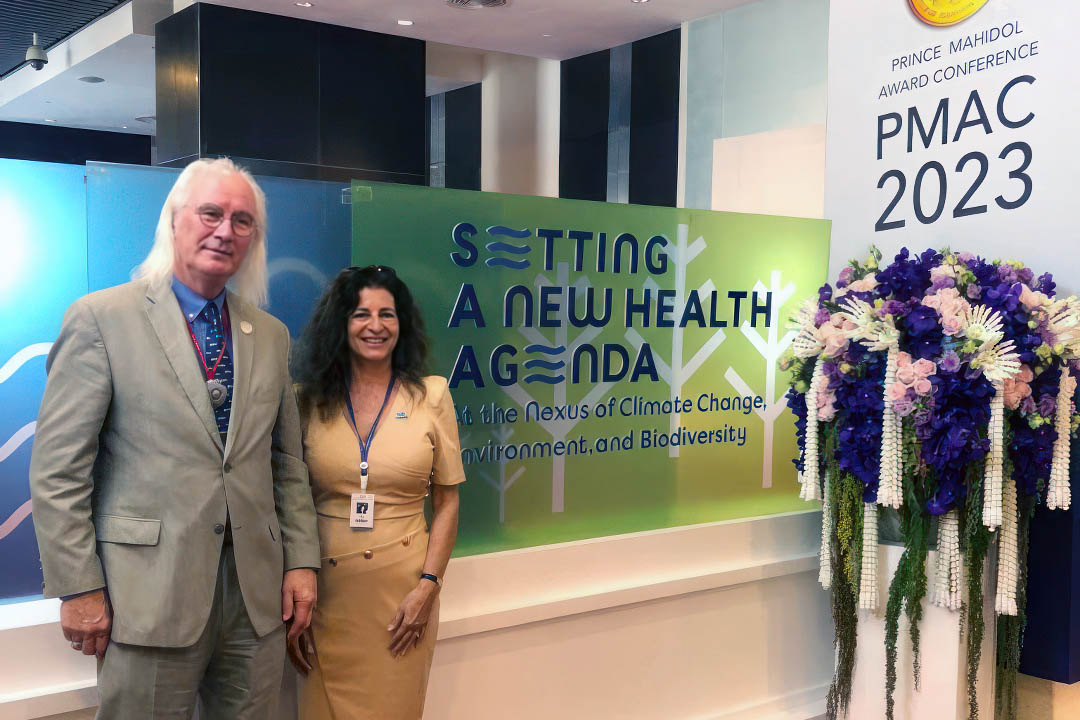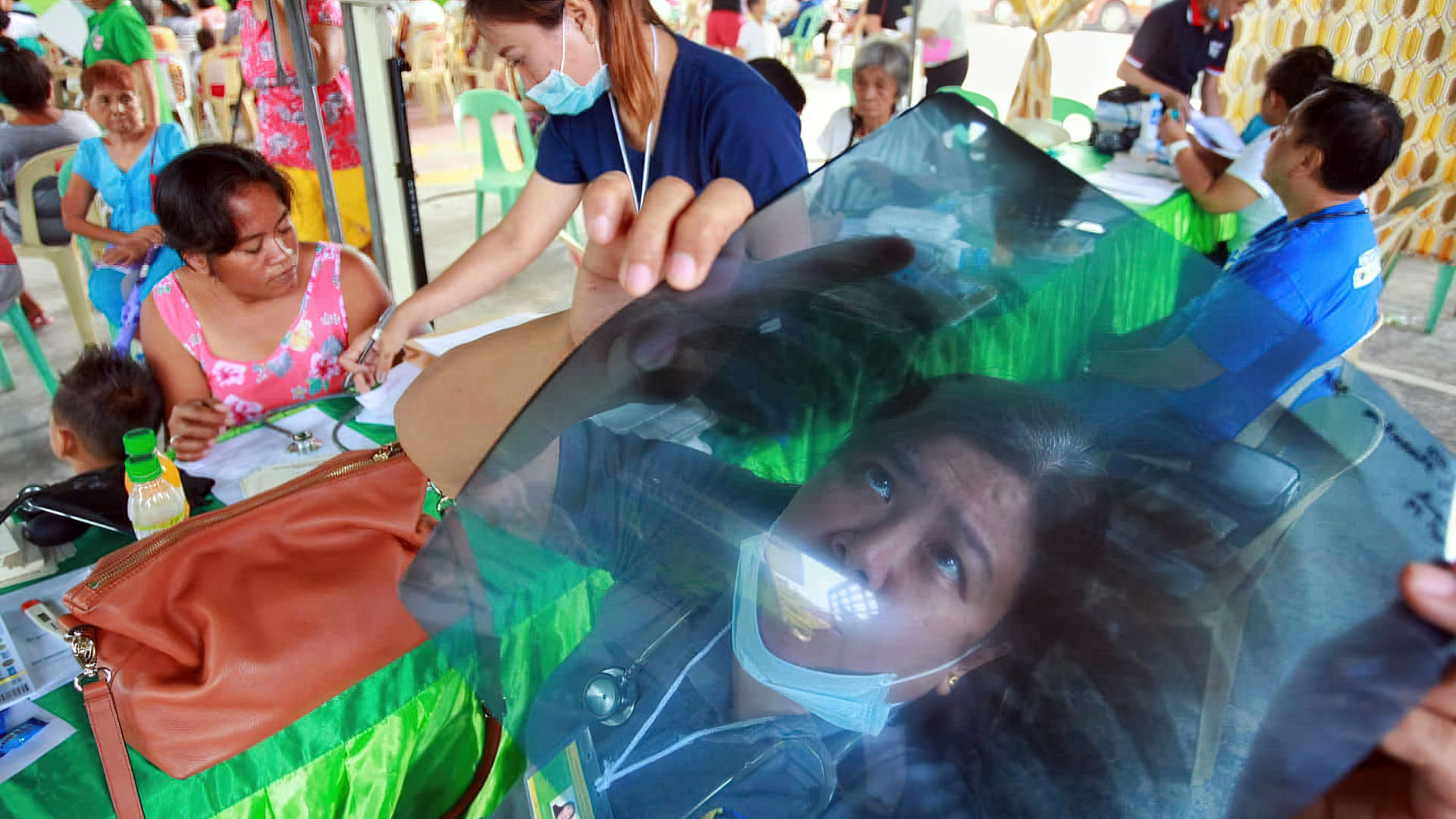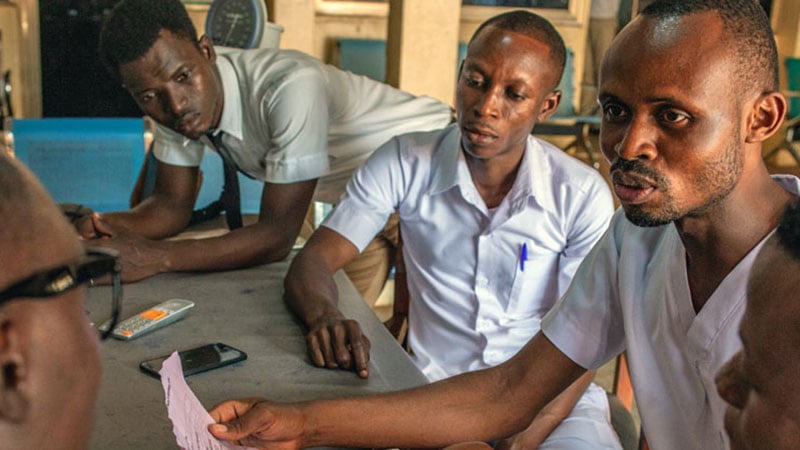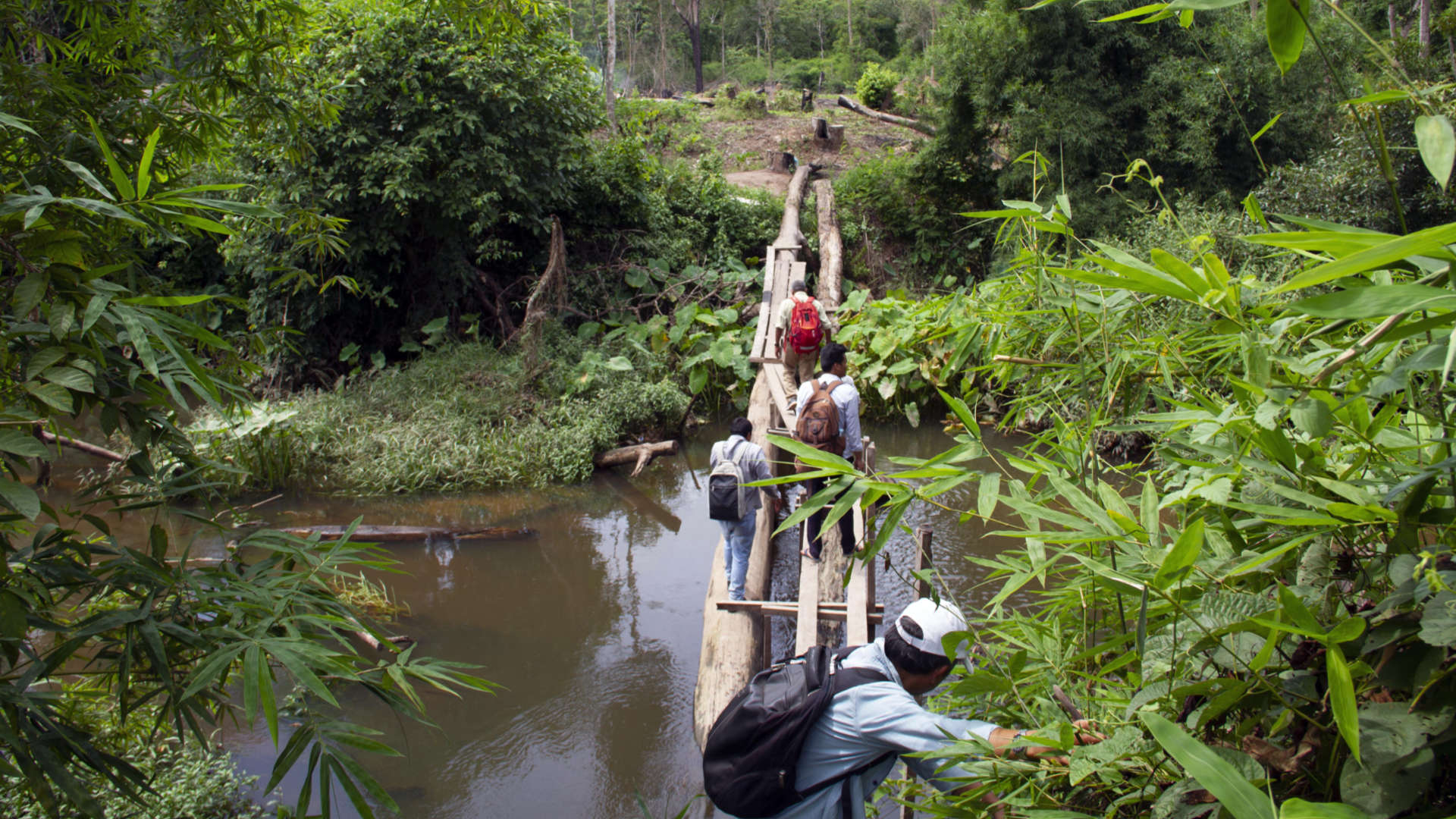The Prince Mahidol Award Conference (PMAC), held from Jan. 24-29 in Bangkok, Thailand, offers a powerful platform for deeper dives and dialogue into complex global health issues. This year’s event focused on setting a new health agenda at the nexus of climate change, environment, and biodiversity to improve human and planetary health.
URC’s Dennis Carroll, Ph.D., Senior Advisor, Global Health Security, and Beth Turesson, Ph.D., Senior Technical Advisor, Infectious Diseases attended the event. Carroll – a member of the PMAC International Organizing Committee – chaired two PMAC 2023 side meetings and managed the opening plenary, the dinner debate, and the closing plenary.
Carroll said the conference was a success, “particularly in being able to generate an intergenerational dialogue about the climate crisis’s impact on health and the way forward. This exchange created a unique opportunity for young leaders to lay out their own vision for what needs to be done.”
Forum Fosters Inter-sectorial Collaboration and Learning
Carroll was joined at PMAC by Beth Turesson, URC Senior Technical Advisor – Infectious Diseases. Turesson said PMAC 2023 featured field trips in addition to conference sessions, such as the “Nan Sandbox Project” outing, during which she planted a teak tree. The activity provided an opportunity to learn about the relationship between deforestation’s effect on climate and community health and local efforts to marry preservation of the forest with creating sustainable livelihoods for local communities.
Conference sessions included topics on learnings from the COVID-19 pandemic, strengthening health equity, and health workforce and health system resilience in the face of climate change.
One of the side meetings Carroll chaired featured a debate about the need for a global mechanism to safeguard against the release – either accidentally or on purpose – of high-consequence pathogens. With more countries handling these pathogens, it raises questions about the need for an international “safeguards” convention that sets global standards for the field collection, transport, laboratory research and long-term storage of these pathogens, similar to how the International Atomic Energy Safeguard Agreement has set standard practices for handling, reporting and monitoring of nuclear materials.
Planning for Disasters to Limit Impact on Health Service Provision
Climate-related events – such as extreme weather, heatwaves, floods, and droughts – affect human health and well-being both directly and indirectly. Typhoons, for example, flood homes and wash out roads. But even after these storms pass, health care service delivery often continues to be interrupted or fragile. People in need of regular treatment for diseases such as TB can suffer greatly.
Relevant URC-led programs in countries such as the Philippines are tracking the impact of climate on health. During a recent storm event, the URC-led USAID TB Platforms Project conducted a baseline capacity assessment using USAID’s Global Climate Change Institutional Capacity Assessment Tool to help insure continuity of TB treatment. The assessment revealed weaknesses in resource allocation and use of data. Based on the findings, the Project is working with local health authorities to create an action plan for climate change management.
More Development Organizations Interested in Climate and Health
The conference attracted donors, non-government organizations, and private sector and international agency actors involved in health and climate change work, Turesson said. “It was an important reminder for global health groups about the increasing overlap between climate change and widespread health implications.”
The Thai Royal Family sponsor this unique annual conference. HRH Princess Maha Chakri Sirindhorn’s opening remarks reflect her personal commitment to addressing the challenges posed by the climate crisis on human health. She has a long history of supporting health causes, Carroll said. The 2024 event will focus on global health and geopolitics.



